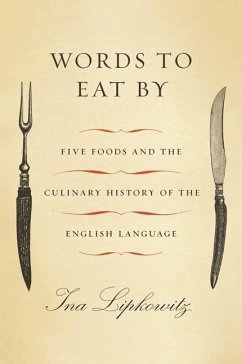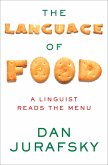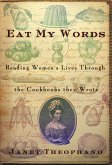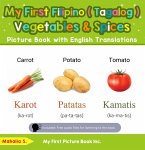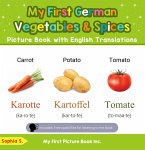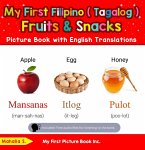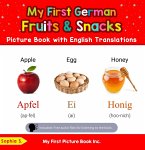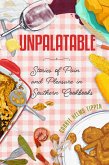You may be what you eat, but you're also what you speak, and English food words tell a remarkable story about the evolution of our language and culinary history, revealing a vital collision of cultures alive and well from the time Caesar first arrived on British shores to the present day.
Words to Eat By explores the remarkable stories behind five of our most basic food words, words which reveal fascinating aspects of the evolution of the English language and our powerful associations with certain foods. Using sources that vary from Roman histories and early translations of the Bible to Julia Child's recipes and Frank Bruni's restaurant reviews, Ina Lipkowitz shows how saturated with French and Italian names the English culinary vocabulary is, "from a la carte to zabaglione." But the words for our most basic foodstuffs -- bread, meat, milk, leek, and apple -- are still rooted in Old English and Words to Eat By reveals how exceptional these words and our associations with the foods are. As Lipkowitz says, "the resulting stories will make readers reconsider their appetites, the foods they eat, and the words they use to describe what they want for dinner, whether that dinner is cooked at home or ordered from the pages of a menu."
Contagious with information, this remarkable book pulls profound insights out of simple phenomena, offering an analysis of our culinary and linguistic heritage that is as accessible as it is enlightening.
Words to Eat By explores the remarkable stories behind five of our most basic food words, words which reveal fascinating aspects of the evolution of the English language and our powerful associations with certain foods. Using sources that vary from Roman histories and early translations of the Bible to Julia Child's recipes and Frank Bruni's restaurant reviews, Ina Lipkowitz shows how saturated with French and Italian names the English culinary vocabulary is, "from a la carte to zabaglione." But the words for our most basic foodstuffs -- bread, meat, milk, leek, and apple -- are still rooted in Old English and Words to Eat By reveals how exceptional these words and our associations with the foods are. As Lipkowitz says, "the resulting stories will make readers reconsider their appetites, the foods they eat, and the words they use to describe what they want for dinner, whether that dinner is cooked at home or ordered from the pages of a menu."
Contagious with information, this remarkable book pulls profound insights out of simple phenomena, offering an analysis of our culinary and linguistic heritage that is as accessible as it is enlightening.
Dieser Download kann aus rechtlichen Gründen nur mit Rechnungsadresse in D ausgeliefert werden.

